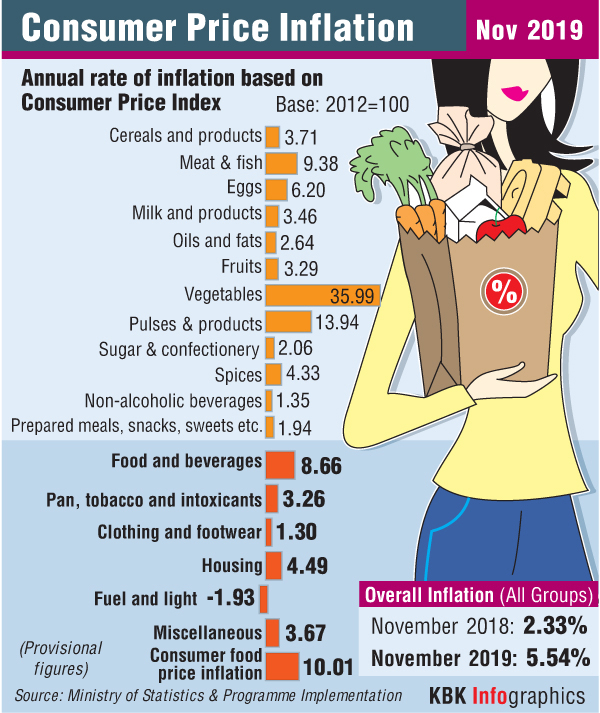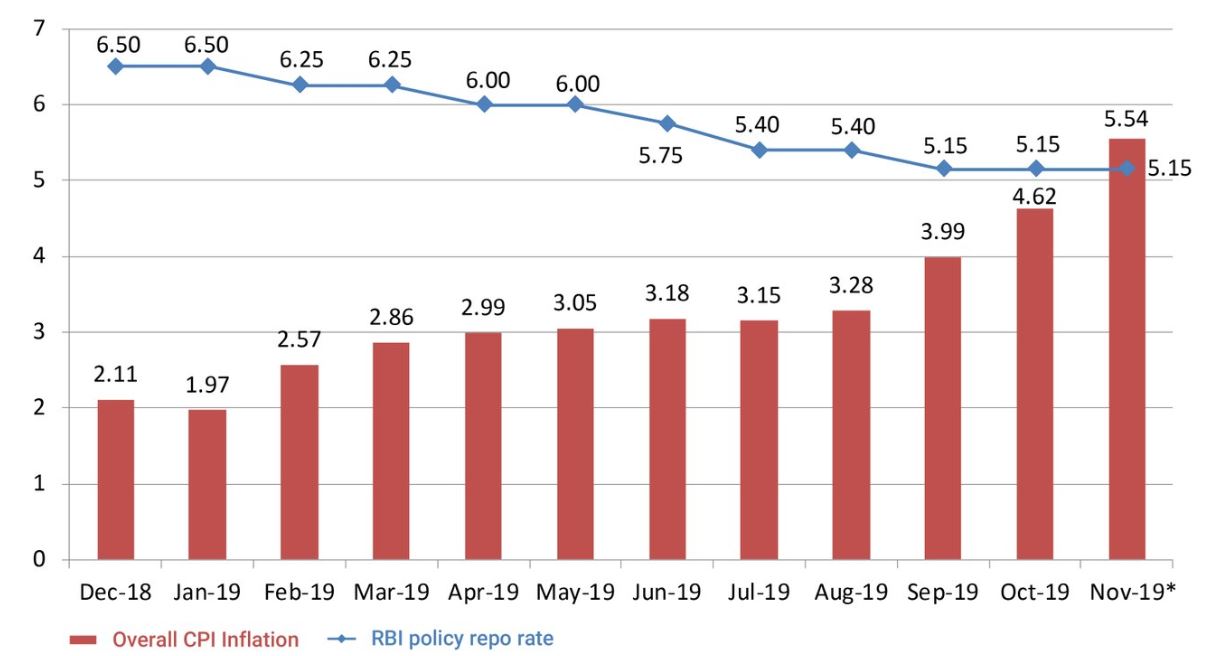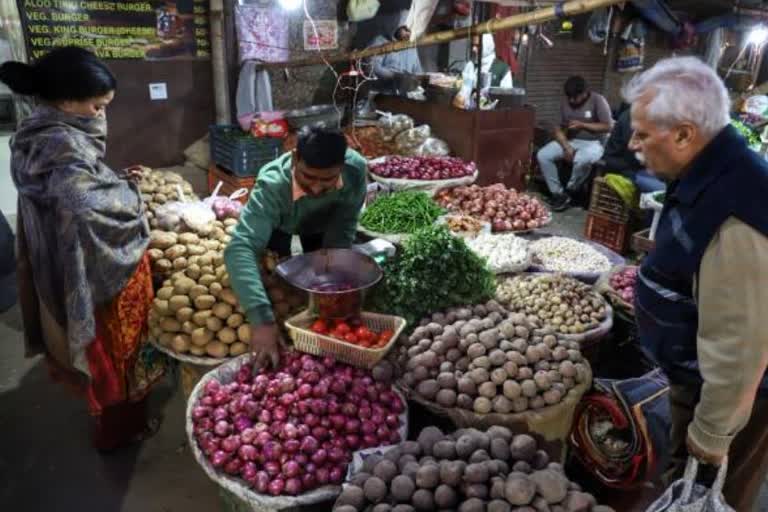New Delhi: Retail inflation spiked to a more than three-year high of 5.54 per cent in November due to costlier food products like vegetables, pulses and protein-rich items.
The previous high was in July 2016, when the consumer price index-based inflation stood at 6.07 per cent. Retail inflation was 4.62 per cent in October, and 2.33 per cent in November 2018.
According to the data released by the National Statistical Office (NSO), inflation in the food basket jumped to 10.01 per cent. This compares with 7.89 per cent October and (-) 2.61 per cent in the year ago-month.
During the month, inflation in vegetables shot up to 35.99 per cent, as against 26.10 per cent in October.

Likewise, the prices of cereals and eggs grew at a faster pace of 3.71 per cent. Prices of meat and fish rose by 9.38 per cent annually and of eggs by 6.2 per cent in November.
Prices of pulses and related products jumped 13.94 per cent during the month.
Read more:India's economy to grow at 4.3% in Q4 2019: Nomura
In the fuel and light category, prices dropped by 1.93 per cent.
The Reserve Bank of India has been mandated by the government to contain inflation in the range of 4 per cent, with a margin of 2 per cent on either side.

ICRA Principal Economist Aditi Nayar said that moderation in vegetable prices should douse food inflation to a large extent in early 2020, and healthy groundwater and reservoir levels bode well for rabi output and yields of various cereals.
However, the year-on-year decline in the area sown under rabi pulses and oilseeds poses a concern, given the high inflation being recorded by some of these items.
"ICRA expects the CPI inflation to spike further to 5.8-6 per cent in December 2019, close to the upper threshold of the MPC's medium-term target, driven by the recent revision in telecom tariffs. As a result, we expect the MPC (monetary policy committee of RBI) to remain on hold in its February 2020 policy review," she said.
India's November inflation has surged to 40-month high mainly due to an increase in food prices, said Rahul Gupta, Head of Research - Currency, Emkay Global Financial Services
"At this month's policy, RBI refrained from cutting rates due to uptick in CPI despite a slow growth. If inflation continues to rise further then RBI may continue to maintain a pause at the February policy," he said.



